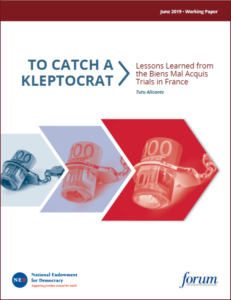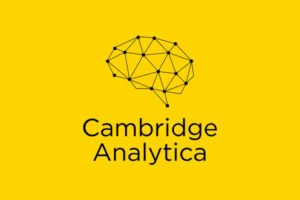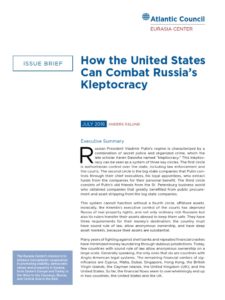 Over the past year, an extraordinary burst of anti-kleptocracy legislation—much of it intended to counter Russian influence—has taken aim at the tools and tactics of foreign criminals looking to move money through the United States. These bills, which enjoy bipartisan support, aim to shore up America’s moral high-ground against the forces of kleptocracy, notes Casey Michel, an investigative reporter at ThinkProgress.
Over the past year, an extraordinary burst of anti-kleptocracy legislation—much of it intended to counter Russian influence—has taken aim at the tools and tactics of foreign criminals looking to move money through the United States. These bills, which enjoy bipartisan support, aim to shore up America’s moral high-ground against the forces of kleptocracy, notes Casey Michel, an investigative reporter at ThinkProgress.
Such measures are long overdue. For years, America has acted as arguably the world’s greatest offshore haven. For decades, American states have accrued fees from company formation, not bothering to ask which criminals, narco-traffickers, or extremist networks are behind the anonymous LLCs spreading like fungus in Reno or Cheyenne. Everyone from Chavista goons to post-Soviet kleptocrats have gotten in on the action, hiding their millions from investigators both foreign and domestic, he writes for The American Interest:
 But the heady days of America as the capital of anonymous shell company formation appear to be coming to a close. Earlier this summer, a bill aimed at ending the practice—the Corporate Transparency Act—passed out of a House committee. The bill, which would force companies to identify their owners, hasn’t yet passed the House, and may yet be bundled with broader anti-money laundering legislation as it moves through Congress. However, a pair of bills in the Senate complement the Corporate Transparency Act; one, the Improving Laundering Laws and Increasing Comprehensive Information Tracking of Criminal Activity in Shell Holdings (ILLICIT CASH) Act, wouldn’t just identify those behind anonymous companies, but also create a team of financial expert investigators at the Treasury Department’s Financial Crimes Enforcement Network (FinCEN) to incubate new innovations in America’s efforts to counter grand corruption.
But the heady days of America as the capital of anonymous shell company formation appear to be coming to a close. Earlier this summer, a bill aimed at ending the practice—the Corporate Transparency Act—passed out of a House committee. The bill, which would force companies to identify their owners, hasn’t yet passed the House, and may yet be bundled with broader anti-money laundering legislation as it moves through Congress. However, a pair of bills in the Senate complement the Corporate Transparency Act; one, the Improving Laundering Laws and Increasing Comprehensive Information Tracking of Criminal Activity in Shell Holdings (ILLICIT CASH) Act, wouldn’t just identify those behind anonymous companies, but also create a team of financial expert investigators at the Treasury Department’s Financial Crimes Enforcement Network (FinCEN) to incubate new innovations in America’s efforts to counter grand corruption.
 The Cambridge Analytica story opened a window onto a new constellation of international billionaires, corrupt politicians, and war profiteers who were apparently amassing enormous power, notes Tamsin Shaw. The movie – The Great Hack – shows that the story isn’t only about technology, data, and psychographic profiling; it’s also, at root, a story about the consequences of entrenched economic inequality, the privatization of essential public assets and government functions, including even national security, and the challenge to conventional foreign policy posed by the bargains being struck between international kleptocrats, she writes for The New York Review of Books.
The Cambridge Analytica story opened a window onto a new constellation of international billionaires, corrupt politicians, and war profiteers who were apparently amassing enormous power, notes Tamsin Shaw. The movie – The Great Hack – shows that the story isn’t only about technology, data, and psychographic profiling; it’s also, at root, a story about the consequences of entrenched economic inequality, the privatization of essential public assets and government functions, including even national security, and the challenge to conventional foreign policy posed by the bargains being struck between international kleptocrats, she writes for The New York Review of Books.
 A generation of Eastern dissidents has thought harder than we have about how to self-organize, about how to operate in a world run by secretive, kleptocratic elites who go out of their way to create distraction and apathy, NED board member Anne Applebaum writes for The Washington Post (HT:FDD)
A generation of Eastern dissidents has thought harder than we have about how to self-organize, about how to operate in a world run by secretive, kleptocratic elites who go out of their way to create distraction and apathy, NED board member Anne Applebaum writes for The Washington Post (HT:FDD)
Of course, ending America’s role as the world’s greatest font of anonymity isn’t the be-all, end-all of anti-kleptocracy efforts. Michel adds. Nor are things like the Corporate Transparency Act the only bills being proposed. Instead, there is a constellation of inventive laws, all aimed at different facets of the kleptocratic process and representing a bipartisan effort, that comprise the legislative push. RTWT







